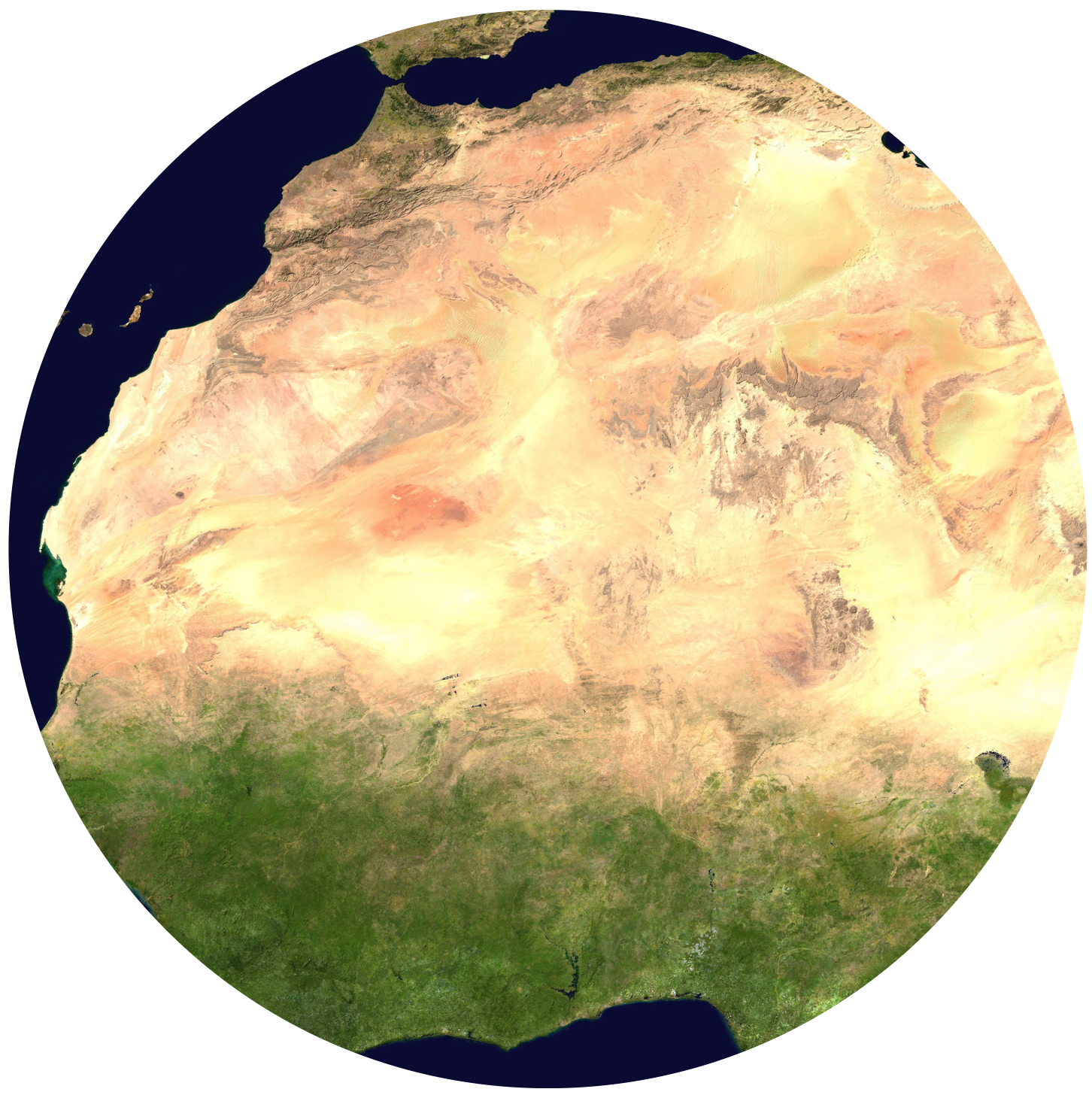Deteriorating humanitarian conditions in Libya have prompted significant preparations in Tunisia for the possibility of a refugee crisis, while Morocco focuses on combatting human trafficking. And Algeria’s fight against corruption continues with mixed results.
Algeria
Army Chief of Staff, Ahmed Gaid Salah, continues his crackdown on corruption. Three directors of university residences in the wilaya of Setif, along with the meat supplier of the said residences, have been sentenced to prison. The former director of fisheries resources of the wilaya has been arrested for allegations of corruption as well (Alg24)[1].
This strategy, meant to address political tensions, has resulted in mitigated outcomes. The call for dialogue launched by Ahmed Gaïd Salah has given rise to disparate reactions on the part of the political class between those welcoming the offer (RND, MPA, TAJ and Talaïe El Hourriyet), those favorable with reservations and questions (Jil Jadid and MSP), and those who oppose it (RCD and FFS) (Algérie360°)[2]. Moreover, the president of the People's Assembly of the Tamanrasset wilaya (APW), Moulay Bradai, presented his resignation because of a "lack of cohesion" between the different committees of the Assembly (Alg24)[3].
While weekly protests continue in different parts of the country, some grave violations have been registered. Amnesty International called for a "thorough, independent, impartial" investigation into the death of a young protester on the 12th April in the south of Algiers, a result of police abuse (France 24)[4].
The presidential elections programmed for the 4th July 2019 promises to be a turning point in Algeria’s modern history. Yet, applications are long in coming. Two applicants, Abdelhakim Hamadi and Hamid Touahri, have submitted their candidacy after the deadline set on Saturday 25 May at midnight (BBC)[5]. To this day, no candidacy has been submitted to the Constitutional Council (Le Parisien)[6].
Egypt
Egypt has been mentioned in a Human Rights Watch (HRW) report documenting Egyptian Security Forces and ISIS-Affiliate Abuses in North Sinai (Human Rights Watch)[7]. Human rights campaigners stated Egyptian forces and militants in Sinai are allegedly responsible for crimes against humanity (BBC)[8]. Egypt’s military has since denied the NGO’s accusations, stating the report is based on unverified sources (Egyptian Streets)[9].
On a diplomatic level, all Ukrainian sailors of Sea Shark vessel detained in Egypt in December 2018 for violating Egypt's borders have returned home, according to the Ukrainian Ministry of Foreign Affairs (UNIAN)[10].
Libya
Libya remains in a political deadlock. General Haftar accused some parties, including United Nations Special Envoy Ghassan Salamé, of seeking to divide Libya (Egypt Today)[11].
The human rights situation is degrading. The European Union’s ambassadors have expressed concerns over the human rights and international law violations in the country as they met with Haftar in Benghazi (Libyan Express)[12]. Moreover, UNHCR has evacuated hundreds of vulnerable refugees to safety in Rome (UNHCR)[13].
Libya's Foreign Minister has attended a preparatory meeting of the summit of the Organization of Islamic Cooperation (OIC), despite some protests regarding Saudi Arabia's support for Haftar (Libya Observer)[14]. Meanwhile Haftar is consolidating his relationships with his Arab allies. The Libyan National Army, Haftar’s forces, extradited a wanted terrorist, Hesham El-Ashmawy, to Egypt (Ahram Online)[15].
Mauritania
The former president of the Popular Front, Chbih Cheikh Melainin, together with the party’s leadership, joined the candidate of the Coalition of Living Together (CVE), Dr.Kane Hamidou Baba (L'Authentique)[16].
Presidential candidate Sidi Mohamed O. Boubacar met with former President Sidi Mohamed O. Sheikh Abdallahi. This meeting was devoted to examining the political situation in the country and the question of the presidential elections scheduled for next June (Sahara Medias)[17]. Meanwhile, the absence of foreign observers for the presidential elections worries both the opposition and the European Union (RFI)[18].
Along these lines, the candidate for the upcoming presidential elections Mohamed O. Maouloud has accused the current regime of wanting to destroy the country by selling one of the mines of the national industrial and mining company in a sensitive situation, while the country is on the eve of a presidential election (Sahara Medias)[19].
The Council of Ministers examined and approved a draft law authorizing the ratification of the Credit Agreement between Mauritania and the Arab Fund for Economic and Social Development (AFESD), intended for financing Supplementary Drinking Water and Oasis Development Project in Rural Areas (L'Authentique)[20].
Morocco
Six individuals were brought before the prosecutor's office in Tangier for their alleged links to a network of illegal migration (2M)[21]. Additionally, a national commission to fight human trafficking has been established in Rabat (HuffPost)[22].
Morocco made progress in the World's Children's Report and is now ranked eighty-third (Yabiladi)[23].
Three Moroccan associations called for a sit-in in front of the parliament to protest against the visit of US President Donald Trump’s senior advisor Jared Kushner to Morocco and voice their opposition regarding the Israeli-Palestinian peace plan (Yabiladi)[24].
In the light of the mid-term review, the head of government, El Othmani, expressed his concern regarding the opposition’s eventual motion of no-confidence (Le 360)[25].
Tunisia
UNHCR has declared that a plan is ready for the eventual welcoming of 25,000 refugees from Libya following the escalation of violence in the country (Ansa Med)[26]. The worsening situation in Libya was extensively discussed between Tunisia and Italy during a recent summit. Tunisia’s head of State expressed his fear of a repetition of the 2011 scenario in which the country had to host around one million Libyan refugees, reaching a state of maximum alert (Mayfield Recorder)[27].
Security remains a priority for Tunisia, especially with the upcoming touristic summer season. Counter-terrorism forces are actively searching for three Tunisian and one Algerian terrorists. The suspects are allegedly members of the Uqba ibn Nafi battalion, affiliated with al-Qaeda in the Islamic Maghreb (Asharq Al-Awsat)[28].
Tunisia is making a step towards further progressive laws. After numerous controversies, the long-awaited bill regarding equality in inheritance between men and women is currently debated in parliament (RFI)[29].

